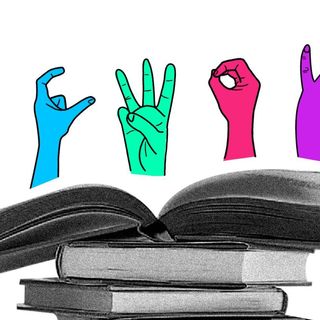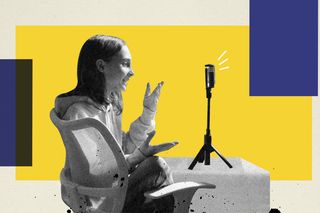
‘Kid‑fluencers’ Will Get Privacy, Exploitation Protection Under French Law
In the lucrative world of social media, children’s well-being is barely regulated.

A new law in France will regulate how social media stars under 16 years of age — popularly also called kidfluencers — work and earn an income. In an effort to secure children’s rights online, the law requires the children’s earnings to be placed in a bank account in their name until they turn 16 (at which point); it mandates companies who want to work with these kidfluencers take permission from local authorities first; and it secures the children’s right to be forgotten — if they want the content they make to be taken down, platforms like YouTube would have to oblige.
Up until now, the world of kidfluencers — a lucrative one that deals in millions, in terms of both followers and income — was a legal vacuum in the country, with child labor prohibited in France, except on the Internet. Who determined how much children worked at their influencing job was left largely undetermined, as was what happened to the money children earned, and what privacy and consent boundaries had been set for the children. Unfortunately is a common occurrence in the rest of the world, including India.
Toy reviews, pranks, gift-opening, and slime-making are some of the top content genres in which kidfluencers thrive, especially on YouTube, where a partner program is set up to give kidfluencers a cut of the ad revenue. This influencer economy works completely differently from how child stars are treated in the real world, where laws are designed to protect them from exploitation, both by outside entities and even their own parents. Kidfluencer horror stories have abounded since this industry took off in the last decade, with children coerced to do regular drops — at best with the help of lollipops, as one mom said, at worst through being abuse, starvation, and emotionally manipulation, as seen in an incident out of Arizona, U.S. Amidst it all, parents have given all kinds of reasons for including minors in their digital money-making ventures, from saying the kids “enjoy it,” to a more resigned “that’s what we signed up for,” The Guardian reports.
In this giant mess of an industry, the issue of consent crops up constantly. YouTube doesn’t let children under the age of 13 make their own accounts, so many young kidfluencers are aided by their parents, who register the account in the adult’s name. In the age bracket of unborn to 13, especially, kids don’t really have a say in what gets posted about them, either on accounts where they’re stars, or on their parents’ social media accounts that feature the children. We see children glammed up for photo ops, or promoting some brand they probably have no idea about, completely unable to control their image. On the other end, such content is aimed at children from the same age group, who watch these kidfluencers without any mental capacity to differentiate between advertising and plain old fun. This mega-industry, which relies on the ‘work’ done by young kids and brands’ ability to exploit this work to influence even more kids, is an ethical and legal minefield, one unfortunately most governments around the world are not equipped to handle.
Related on The Swaddle:
Privacy For Kids Isn’t Just a Digital-Age Problem; It’s a Developmental Need
Then appears the idea of safety — with millions of followers comes tons of feedback, which we now know can border on insulting and cruel. The constant feedback loop on social media, we know now, is severely damaging to the brains of adults who get addicted to dopamine hits, slowly tearing away at their tolerance for hate and criticism. Imagine what this loop does to a young, developing child who grew up knowing the Internet as the only reality, with comments, shares, and brand deals inherently tied to their self-worth.
YouTube has also fought off scandals of child pornography and child abuse on its platform in recent years, demonstrating an inability to tackle or protect communities geared toward children and families from the darker parts of the Internet. Bolstering a child to fame in an environment that cannot be regulated for their or their viewers’ safety — by the platform or by any external regulatory authorities — adds on a danger element to the already existing ethical and legal violations omnipresent in the world of the kidfluencer.
It’s unclear who is at fault here — is it the parent who engages in sharenting, normalizing the presence of their kids’ photos on the Internet? Or is it the parent who decides to monetize their child? Or is it the brand who decides to use the child’s image to then influence more children for its own profit? Regardless of the blame, the reality is the kidfluencer industry is thriving, and the least countries can do is attempt to regulate the phenomenon. India, where the kidfluencer industry has recently started gaining momentum, hasn’t recognized this as a problem yet. Hopefully the French laws can provide inspiration for safer future for these children.
SEO Title: France Introduces Law to Regulate Child Influencers’ Work, Income, Rights
Metadescription: Bolstering a child to fame in an environment that cannot be regulated adds on a danger element to the ethical and legal violations omnipresent in kidfluencer world.
Rajvi Desai is The Swaddle's Culture Editor. After graduating from NYU as a Journalism and Politics major, she covered breaking news and politics in New York City, and dabbled in design and entertainment journalism. Back in the homeland, she's interested in tackling beauty, sports, politics and human rights in her gender-focused writing, while also co-managing The Swaddle Team's podcast, Respectfully Disagree.
Related


3 White, Male Scientists Win 2020 Nobel Prize in Medicine
